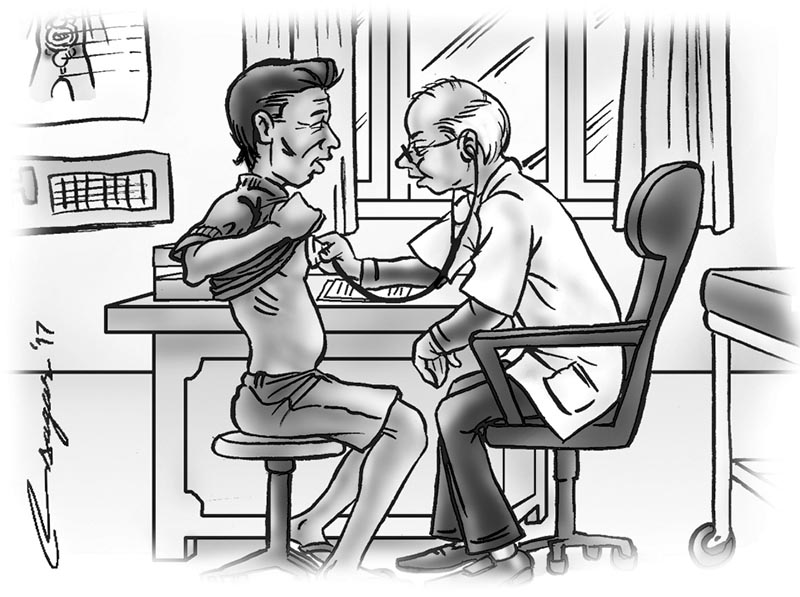Tougher penalties proposed for medical recklessness, negligence
Kathmandu, August 10
New Criminal Code Act, which comes into force on August 18, proposes tougher penalties for criminal negligence in the treatment of a patient.
Section 232 of the act proposes to impose jail sentence not exceeding five years and a fine not exceeding Rs 50,000 on a doctor if s/he is found to have caused death or maimed a patient by reckless acts during the course of treatment.
Section 232 adds that if a doctor causes death or maims a patient by negligent acts, then s/he will face a jail sentence not exceeding three years and a fine not exceeding Rs 30,000.
These penalties are tougher than the provisions of existing General Code.
Section 8 of General Code stipulates that in case a doctor treats or operates a patient with recklessness or negligence and consequently the patient dies or suffers any damage, loss or pain, the doctor concerned shall be liable to pay a fine of up to Rs 500 or face imprisonment for a term not exceeding two years or both.
General Secretary of Nepal Medical Association Dr Lochan Karki said he was not against penalising reckless and negligent doctors, but there should be a balanced approach in the law or else the provision could put patients at risk.
Infrastructure in remote hospitals is so poor that at times doctors have to use blades to perform surgery on women in labour to save lives of mother and child.
“Under the new law this life-saving act of a doctor can be defined negligence and hence doctors might not take such a risk,” he added. “Doctors wary of medical negligence law in the United States of
America prefer to start treatment only after the disease is fully diagnosed, sometimes allowing the progression of the disease.”
Dr Karki said the strict penalty for medical negligence could lead doctors to subject patients to undergo all kinds of tests even for minor ailments, making the treatment cost exorbitant.
He said doctors wary of medical negligence laws could refuse to perform critical surgeries.
“The government needs to make provision of insurance for doctors, health professionals and patients. Only then can doctors compensate victims in case of negligence,” he added.
He said there should be a clear law to distinguish the culpability of doctors and other medical professionals. “Sometimes a patient’s death is caused due to the negligence of their family members or nurses, but there is a tendency of accusing doctors of all kinds of shortcomings in patients’ treatment,” he added.
Dr Karki said the government should also bring a new law to protect health institutions and medical professionals from vandalism. “Medical professionals are often targets of vandals at the slightest suspicion of negligence in the treatment of a patient. Often probe committees absolve doctors, but hospitals are not compensated for the loss,” he said.






